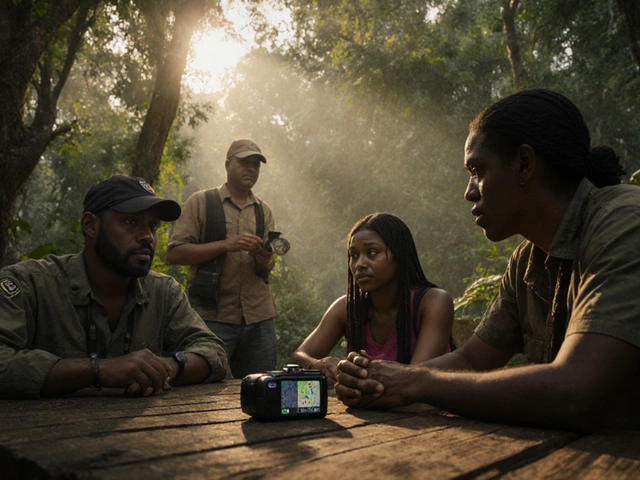Volunteer Impact Calculator
How Much Is Your Time Worth?
Enter your volunteer hours and a standard hourly rate to see the equivalent monetary value of your contribution.
Your Impact Value
Equivalent paid labor value
$0.00
This shows the potential cost if paid labor were required.
Important Legal Note: This calculation represents what it would cost if volunteers were paid, but in reality, volunteers should not be paid for this type of work. Paying volunteers can create legal complications for nonprofits, including employment obligations and potential loss of tax-exempt status.
Community Value
Volunteers contribute more than money. They provide community connection, skills development, and emotional support that cannot be measured in dollars.
Nonprofit Impact
Every hour of volunteer time allows organizations to stretch limited budgets further toward their mission—providing more food, shelter, and care to those who need it most.
Why do volunteers not get paid? It’s a question that pops up every time someone sees a person cleaning up a beach at dawn, tutoring kids after school, or serving meals at a shelter-no paycheck, no overtime, just a smile and a willingness to show up. It feels strange in a world where everything has a price tag. But the truth is, paying volunteers isn’t just uncommon-it’s often against the rules, the spirit, and sometimes even the law.
Volunteering Isn’t a Job-It’s a Choice
At its core, volunteering means giving your time without expecting money in return. That’s the definition. Not because charities can’t afford to pay, but because the whole point is to act out of care, not compensation. When you volunteer, you’re not hired-you’re joining a cause. You’re saying, ‘I believe in this, and I want to help.’
Think about it: if you paid every person who helped at a food bank, you’d be turning volunteers into employees. That changes everything. Suddenly, you need contracts, payroll systems, taxes, insurance, performance reviews. Nonprofits aren’t businesses. Most run on tight budgets, and every dollar spent on wages is a dollar taken away from food, blankets, or medicine.
There’s also a cultural expectation. In New Zealand, where I live, volunteering is woven into the social fabric. People help because they see a need and feel connected to it. A high school student packs food parcels because their neighbor lost their job. A retired teacher reads to kids at the library because they miss the classroom. These aren’t jobs-they’re acts of community.
Legal and Tax Rules Make Paying Volunteers Tricky
It’s not just about ethics-it’s about legality. In many countries, including New Zealand, if you pay someone for work that’s meant to be voluntary, you might accidentally create an employment relationship. That triggers obligations under labor laws: minimum wage, holiday pay, workplace safety rules, even workers’ compensation.
Charities don’t want to become employers. They don’t have HR departments. They rely on volunteers because it’s sustainable. If a nonprofit starts paying people for tasks labeled as ‘volunteering,’ they risk being reclassified by the government as an employer-and then they could face back-pay claims, fines, or even lose their tax-exempt status.
There’s a gray area, though. Some organizations offer stipends or reimbursements. That’s different. Reimbursing bus fare, buying lunch for a volunteer who spends eight hours at a fundraiser, or giving a small gift card for their time? That’s allowed. It’s not payment for work-it’s covering costs so people aren’t out of pocket. The line is clear: no wages, no salary, no hourly rate.
Why People Still Show Up-Even Without Pay
If volunteers aren’t getting paid, why do they keep coming back? The answer isn’t complicated: they get something else.
Studies show that people who volunteer regularly report higher levels of life satisfaction. A 2023 study by the University of Auckland found that volunteers in New Zealand were 32% more likely to say they felt a strong sense of belonging in their community than non-volunteers. That’s not a small number. It’s real.
Volunteering builds skills too. A teenager who organizes a clothing drive learns project management. A retired nurse who helps at a mobile clinic sharpens her communication skills. These aren’t just nice extras-they’re resume builders, confidence boosters, and sometimes even career changers.
And then there’s connection. People volunteer because they want to belong. After losing a job, after moving to a new city, after grieving a loved one-volunteering gives structure, purpose, and people. It’s therapy without a bill.

The Myth That Volunteers Are ‘Free Labor’
Some critics say nonprofits use volunteers to avoid paying workers. That’s a dangerous oversimplification. Yes, some organizations do stretch their budgets too thin by relying too heavily on unpaid help. But that’s a failure of funding-not of volunteering itself.
Good nonprofits know the difference between healthy volunteer engagement and exploitation. They train volunteers properly. They respect their time. They don’t assign tasks that require professional licenses or put people in unsafe situations. And they always have paid staff in charge of oversight.
Think of it this way: you wouldn’t ask a doctor to work for free in an ER. But you can ask a neighbor to help sort donated clothes. One requires expertise and legal accountability. The other is community support. Volunteers fill gaps-not replace jobs.
What Happens When You Try to Pay Volunteers?
There are real examples where trying to pay volunteers backfired.
In 2022, a small animal shelter in Taranaki started giving $10 per shift to people who came in to walk dogs. Within months, attendance dropped. Why? Because people who came because they loved animals started showing up only for the money. The ones who showed up for the joy? They left. The shelter ended up with fewer volunteers, more complaints, and no extra funding to sustain the payments.
Another case: a youth center in Christchurch tried to pay teens to tutor younger kids. They thought it would increase participation. Instead, they got a flood of applications from people who wanted the cash, not the experience. The program lost its authentic feel. The kids noticed. The tutors didn’t stick around. The center shut it down after six months.
These aren’t isolated stories. They show something important: money can change motivation. When the reward becomes cash, the act of giving loses its meaning.

Alternatives to Pay-What Volunteers Actually Want
Volunteers don’t need pay. But they do need recognition, respect, and support.
- Training: Giving someone the tools to do their job well shows you value their time.
- Flexibility: Letting people choose when and how they help increases retention.
- Appreciation: A handwritten note, a shout-out on social media, or a simple ‘thank you’ at the end of the day means more than a paycheck to many.
- Opportunities to grow: Offering leadership roles, skill-building workshops, or references for future jobs keeps people engaged.
- Reimbursement: Covering travel, meals, or uniforms removes barriers so people aren’t choosing between helping and paying bills.
One of the most successful volunteer programs in Wellington runs a ‘Skills Exchange’ program. Local artists teach pottery to seniors. Seniors share stories and history with teens. No money changes hands. But everyone walks away with something valuable. That’s the magic of volunteering-not what you get paid, but what you give and receive.
It’s Not About Money. It’s About Meaning.
Volunteers don’t get paid because they’re not working for money. They’re working for connection. For purpose. For change.
When you clean up a park, you’re not just picking up litter-you’re saying, ‘This place matters.’ When you read to a child who’s never had a bedtime story, you’re not just turning pages-you’re opening a door. When you sit with someone who’s lonely, you’re not just being kind-you’re reminding them they’re not alone.
That’s worth more than a paycheck.
And that’s why, even in a world that measures everything in dollars, volunteering stays unpaid. Not because we can’t afford to pay-it’s because we don’t want to.
Can volunteers ever receive money?
Yes, but only in specific ways. Volunteers can be reimbursed for out-of-pocket expenses like travel, meals, or equipment. Some organizations offer small stipends or gift cards as tokens of appreciation. But paying a regular wage, hourly rate, or salary turns a volunteer into an employee-and that brings legal obligations most nonprofits can’t handle.
Do volunteers have any rights?
Volunteers don’t have employment rights, but they do have protections. Reputable organizations provide safety training, insurance coverage for accidents during volunteering, and clear guidelines for behavior. Volunteers also have the right to be treated with respect, to say no to tasks they’re uncomfortable with, and to leave at any time without penalty.
What’s the difference between a volunteer and an intern?
Interns are usually tied to educational programs and may receive a stipend or academic credit. In many cases, interns are legally considered workers if they’re doing tasks that benefit the organization directly. Volunteers, on the other hand, give time freely without expectation of pay or academic credit. Their main goal is to support a cause, not to gain experience.
Why don’t charities just raise more money to pay volunteers?
Many charities are already stretched thin. Raising funds takes time, staff, and resources. Every dollar spent on salaries reduces what goes directly to the cause-food, shelter, education, or medical care. Volunteers allow charities to stretch their budgets further. Plus, many donors give specifically to support services, not wages. Paying volunteers could actually reduce public trust in how funds are used.
Is it wrong to refuse to volunteer if you’re not paid?
No. Volunteering is always optional. No one should feel guilty for not giving their time. People have jobs, families, health issues, or financial pressures. Choosing not to volunteer isn’t selfish-it’s realistic. The strength of a community isn’t measured by how many people work for free, but by how many are supported when they choose to help.






